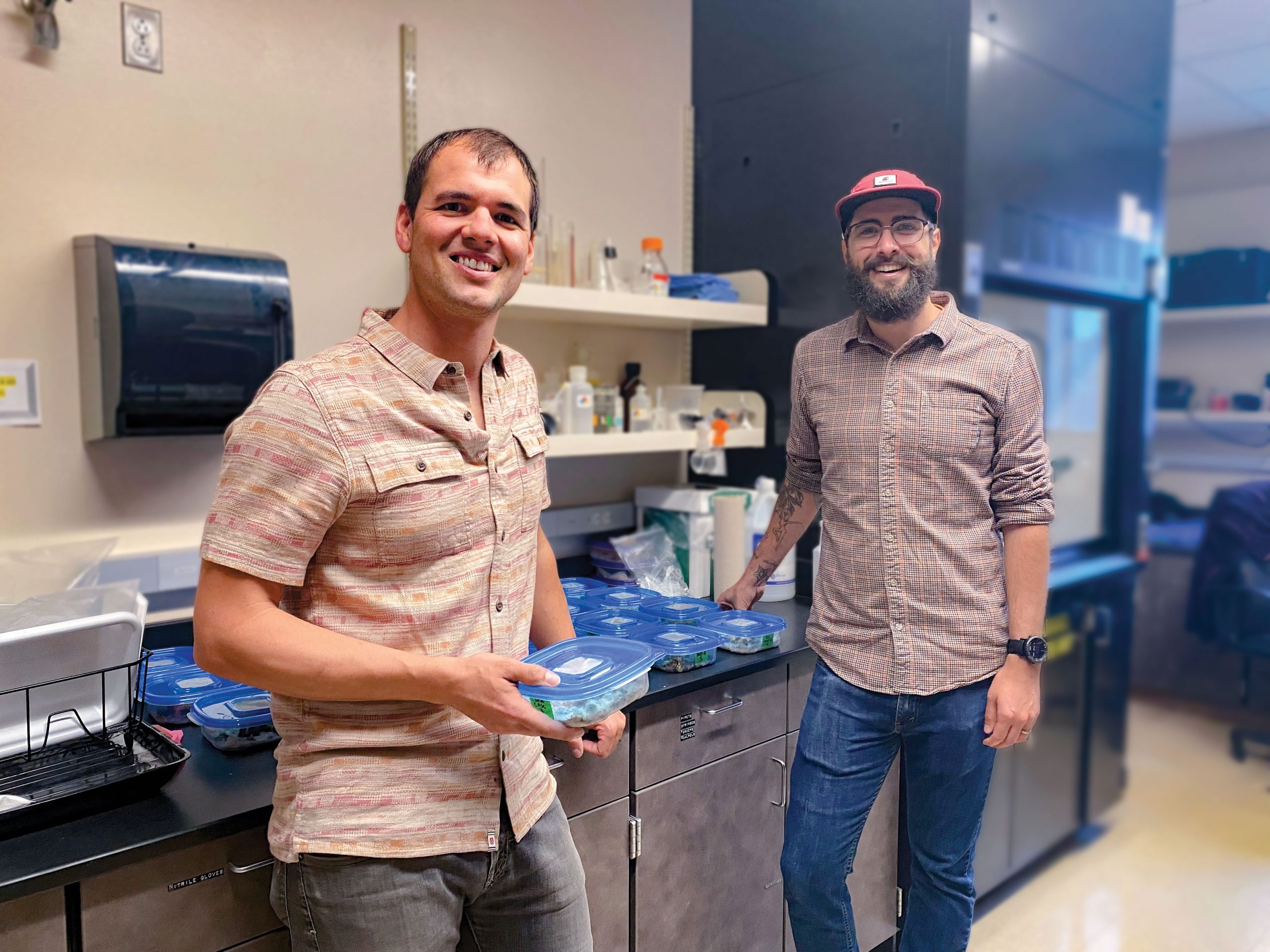The Nottingham Entomology Lab
The College of Agricultural, Human, & Natural Resource Sciences, Department of Entomology, and the Northwestern Washington Research and Extension Center are pleased to welcome Dr. Louie Nottingham as an Assistant Professor of Entomology of Horticultural Crops based at Mount Vernon.
Dr. Nottingham joined the faculty at NWREC in October 2022.
Dr. Nottingham is a native of Virginia. He received his Ph.D. working on Vegetable IPM at Virginia Tech, and conducted post-doctoral research on pear IPM at WSU’s Tree Fruit Research and Extension Center (TFREC) in Wenatchee. He comes to NWREC from TFREC, where he has headed the Nottingham Lab as a research assistant professor since 2019.
Dr. Nottingham’s program will emphasize the development of ecologically and quantitatively based integrated pest management (IPM) through applied research and education for regional crops of significance in Northwestern Washington. He will also provide undergraduate instruction in ecological IPM as part of the Agriculture and Food Systems (AFS) Organic and Sustainable Agriculture major at WSU-Everett, contribute to broader development of the major at WSU Everett, foster connections between WSU-Everett students and NWREC, and provide instruction and advising to graduate students at NWREC.
Recent and On-going Projects
USDA Alaska TASC: Exploring thrips as a trade barrier in Alaska-grown peonies
This is the final year of a multi-agency research project collaboration between the USDA, State of Alaska DNR, Washington State University, USDA ARS, University of Alaska Fairbanks, and peony growers in Alaska. Primary objectives for WSU researchers included the identification of thrips species collected from peony samples, development of identification tools to aid in the establishment of IPM (integrated pest management) programs and conducting field efficacy trials to determine field approaches for pre-harvest control of thrips and to update the current list of registered insecticides.
Deliverables for this project include a curated collection of over 600 slide mounted thrips recovered from Alaskan-grown peonies, the development of two thrips identification keys (a traditional dichotomous key and an interactive Lucid key) based on morphological characters, and four outreach videos covering the methods and results of WSU taxonomic and field efficacy studies that will be posted on the Alaskan Grown YouTube page.
Spotted wing drosophila (SWD) parasitoid biogeography project
Assisting Dr. Betsy Beers, WSU TFREC, in a research project exploring the geographic distribution of several species of parasitoid wasps deemed to be candidates for classical biological control of the invasive spotted wing drosophila (SWD), Drosophila suzukii (Matsumura) (Diptera: Drosophilidae), but recently had adventive populations discovered in southwestern British Columbia and northwestern Washington State. The target parasitoids in this study are Ganaspis brasiliensis (Ihering) (Hymenoptera: Figitidae) and Leptopilina japonica (Novković & Kimura) (Hymenoptera: Figitidae). Around 7,000 Himalayan blackberries, a wild host reservoir for SWD, were collected from over 30 localities near commercial blueberry fields in Whatcom, Skagit, and Snohomish counties. These fruit samples are being monitored daily in the laboratory for SWD and parasitoid wasp emergence. Parasitoid specimens collected during this study will be sent off for species identification and used in molecular studies to better understand how these potential biological control agents could be used to manage SWD populations in combination with other IPM practices.
Berry IPM paired field study
Assisting Alan Schreiber, Agriculture Development Group, Inc., in a three-year paired field research study in blueberries and raspberries in Whatcom County. The objectives of the project are:
- conserve and protect beneficial organisms and reduce secondary pest outbreaks
- reduce overall insect pest pressure without reducing efficacy success
- reduce insecticide residues that would allow berry growers to better meet MRLs allowing increased exports.
One field of the pair will be managed using the growers’ standard pest management system. The other field will be managed in consultation with the project principal investigator, taking into account the data from weekly sampling for pests, including spotted wing drosophila (SWD), aphids, two spotted spider mites, and oblique banded leafrollers, and beneficial arthropods, as well as incorporating insecticides that are safe for parasitoids & predators and also exempt from maximum residue limit (MRL) requirements. At the end of the season comparisons will be made between the pairs of fields regarding pest and beneficial arthropod populations and insecticides applied, any data on yield and grade as well as any information on insect contamination or damage that was detected for the field. The cost of insecticides applied will be calculated for each field.








